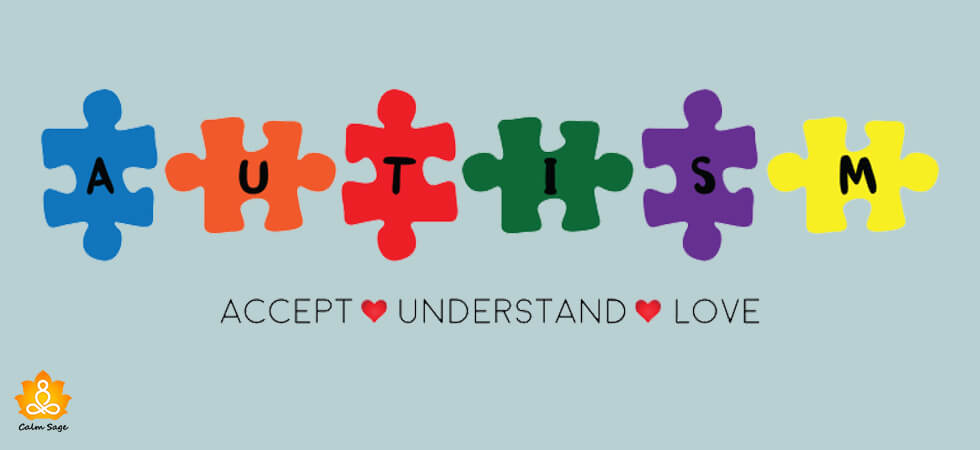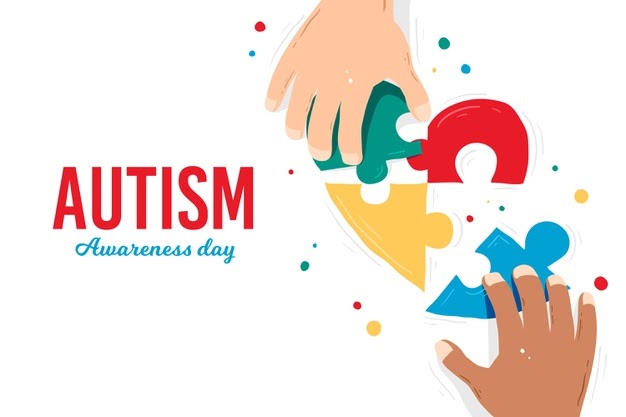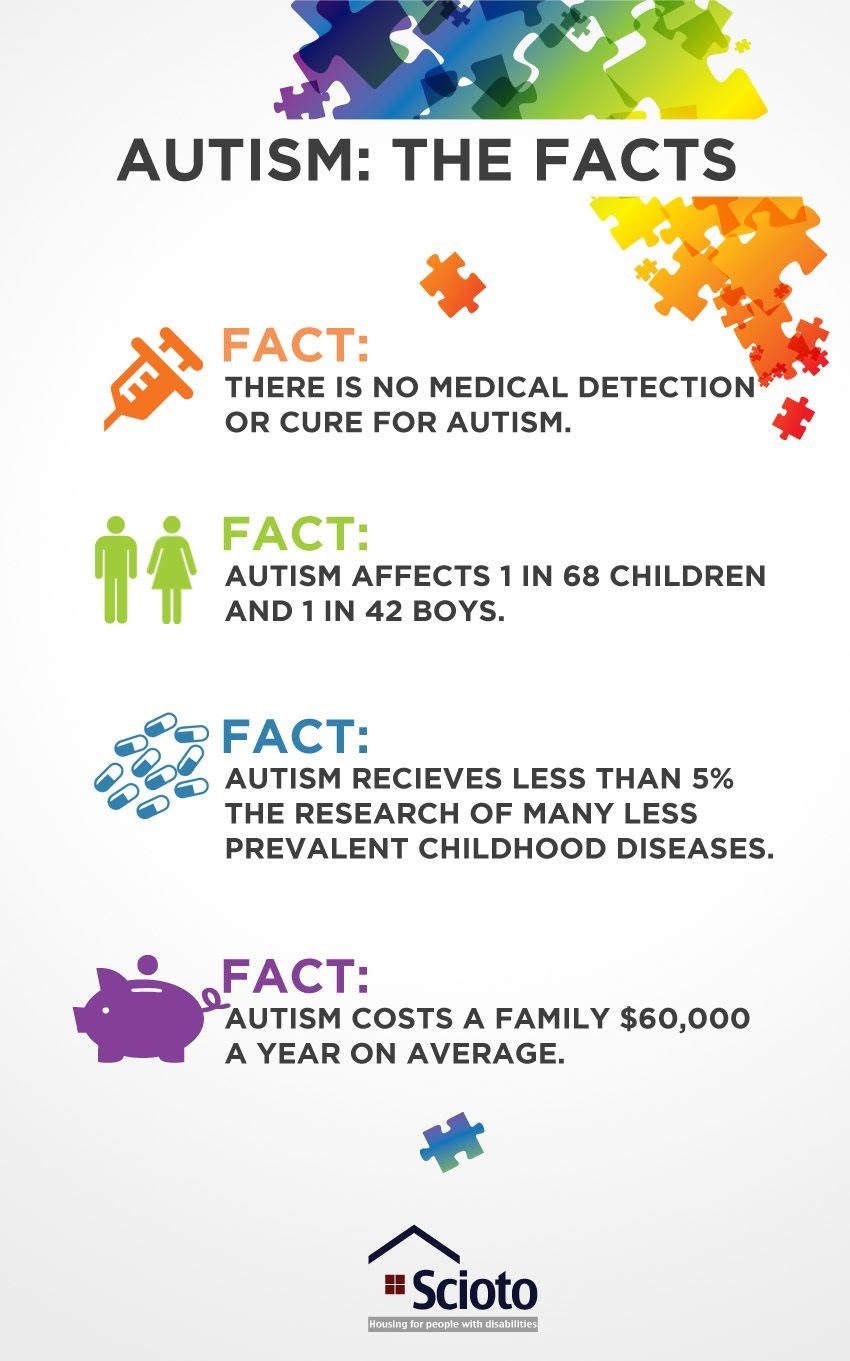Debunking Myths About Autism Spectrum Disorder

April is marked as Autism Awareness Month. You can learn about Autism Spectrum Disorder (ASD) from different sources, but the misconceptions circulating around it hold us back from seeing the full picture. Let us debunk them and get real!
Come let us take the initiative to educate ourselves and create a deeper understanding of Autism. We are sharing with you the 13 most prevalent misconceptions about autism along with the true tale that exists. Time to get your facts checked and awareness about autism enlightened now!

13 Myths About Autism Spectrum Disorder Debunked
Autism Myth 1: Autism Is A Disease
The Truth: An individual with autism is not ill. Autism is not the flu. Autism is not a disease. You can’t catch autism and it is not a contagious health condition. Autism is a neuro-developmental condition. Both nature (hereditary factors) and nurture (environmental factors) contribute to causing autism. Autism certainly impacts an individual’s ability to communicate and interact with others. However, autistic people can live independent and meaningful lives with early intervention and a strong support system.
Autism Myth 2: An Individual With Autism Can’t Communicate
The Truth: That is definitely not true! You might find some individuals with autism converse effortlessly with their parents or caregivers but might need assistance in communicating with peers and others. On the other hand others might just use a word or two to communicate their basic needs, and are likely to use gestures and augmentative communication systems for the same. Their communication skills can vary widely. To put it in a nutshell, people with ASD do communicate as communication is beyond talking and verbal interaction.
Autism Myth 3: People With Autism Cannot Build And Maintain Relationships
The Truth: I won’t argue on the fact that autistic people do lack in social interaction but that doesn’t mean they cannot form relationships with others. Years back it was believed that people with ASD diagnosis prefer social isolation, but with new studies, it has been found that autistic people want to form relationships with others. All you have to make it work is patience, effort, and initiative to talk to them.
Autism Myth 4: People With Autism Do Not Feel Any Emotions
The Truth: People with autism are often perceived as unempathetic and ones who don’t feel emotions like everyone else does. The fact is that they do feel emotions and are empathetic towards others. However, as they find it difficult to interpret other’s expressions and communicate their emotions, people end up perceiving them as someone lacking emotional understanding. By having direct communication with them about your emotions, you can make them understand and express emotions effectively.
Autism Myth 5: Bad Parenting Causes Autism
The Truth: Okay so this one myth about ASD has been around for a while because of the Refrigerator Mother Hypothesis that dates back to the 50s. According to this theory mothers who didn’t often have emotional warmth or neglected the child during developmental stages, would traumatize the child, causing autism. However, it was a completely bogus theory with no scientific proofs attached to it. Of course, with development in science, this theory was soon eradicated. Sadly, people still promote this misconception by understanding the fact that autism is nowhere a reflection of parental love or their parenting style. If you are a believer in this misconception about autism I guess it is about time to debunk it!
Autism Myth 6: Autistic People Are Indistinguishable (they are all alike)
The Truth: Autism is a spectrum disorder which means that every individual will vary on the intensity of symptoms and their abilities. Thus, no two autistic people are alike or indistinguishable, they are all unique with their special abilities. Barry Prizant very beautifully discussed in his book “Uniquely Human: A Different Way” of Looking at Autism that parents and clinicians shall view “autistic” behavior like verbal echoing or hand-flapping as their adaptive strategies to cope with a world that feels chaotic and unpredictable, instead of viewing these behaviors as pathology. And I couldn’t agree more here! Stop trying to make them look like their peers and start acknowledging their uniqueness.

Also Read: 30+ Ways to Calm Your Mind in Less Than 5 Minutes
Autism Myth 7: Autism is Caused By Vaccines
The Truth: The misconception of the vaccine causing autism was a common myth in society. Decades back the research that found vaccines because autism was found to be deceptive and the physician’s medical license was also taken away immediately. The reason why I am sharing this backstory is to make you believe that the old research that gave birth to this misconception does not hold true anymore! Different medicine institutions further investigated the link between autism and vaccinations, the results did not show any connections between the two. You can rest assured that vaccinations are not going to cause autism, don’t let the lie behold the truth!
Autism Myth 8: Individuals With Autism Are Violent
The Truth: People often believe that children with autism are more violent when compared with other children of their age. But if you go and check the research available, there is no link between autistic people and more prevalence of violence among them over others. So scientifically speaking individuals with autism are not MORE violent. However, some situations can of course work as a trigger for them leading to emotional distress, burnout, or sensory overload. But they will never, I repeat NEVER be intentionally more violent or cause physical harm. Just like other kids of their age they may throw tantrums and find it difficult to cope with their emotions.
Autism Myth 9: Autistic People Cannot Learn
The Truth: People with autism can surely learn and even fit in various jobs. Certainly, no two autistic individuals are alike. While 1 in 4 autistic people speak few or no words, others can get a job through proper vocational training. Most autistic people are able, independent, and have a special ability for seeing patterns in data. Some autistic people may take longer to process information, but with the right training and therapy, they can learn and perform well in life.

Autism Myth 10: Only Boys Are Autistic
The Truth: If you say that autism is more prevalent in boys among girls I would agree with that. But if you believe in the misconception that only boys have autism it is about to debunk it! Autism is more prevalent in boys and while no reason is linked with it, it is found that girls are more likely to mask their autism. This happens because they are constantly and more proactively learning the skills to interact with the world as compared with boys. Usually, the girls are even diagnosed much later than the boys because of this reason. This does not mean that ASD is a gender-specific condition.
Autism Myth 11: Every Person With Autism Have a Special Talent (they will be the next Einstein or Rain Man)
The Truth: According to stats 1 in 10 (or more) autistic children show signs of savant syndrome (extraordinary abilities). However, this does not mean that every person with autism will have a special talent or have secret gifts. Asking an autistic individual or their caregiver what their unique talent is can cause frustration. Remember that we all have our strengths and weaknesses, known and unknown, autistic people are no different here. So next time when the question, “what is your unique talent?” pops in your head, hold yourself back!
Autism Myth 12: There Is An Autism Epidemic
The Truth: In recent years when the number of autism diagnoses increased from 115,400 in 2021 to 16,400 in 2015, many people consider these facts as autism epidemics. However, the reason for the dramatic increase in the number of autistic cases is not that autism is an epidemic disorder. The fact that people are becoming more aware of autism and new diagnosis tools have been diagnosed, is the reason why the diagnosis of ASD has increased over the years. Plus, the changes in diagnostic criteria of autism are also a reason underlying the increase in autistic cases around the world. You can rest assured that autism is not becoming an epidemic now or any time soon, people are just becoming more aware and accepting of the same.
Also Read: Everything You Need To Know About Anger Management
Autism Myth 13: Autism Can Be Cured With The Help of Medicine or Therapy
The Truth: One can “grow out of autism” is a phrase that is often heard by autistic people and their caregivers. However, this phrase is nothing more than a myth! The fact that autism has no cure is what holds true. Appropriate therapy or medication can definitely help an individual with autism, but a complete cure is not yet found. So does that mean one should not seek professional help? No! In fact, seeking help from mental health professionals can improve the daily functioning of an individual. Studies support that with proper interventions, one can address the specific concerns, help support the development of new skills, enhance daily life overall, and lead a meaningful life.
Were you also holding some or all of these myths about autism in your head? That’s all right! Thank you for taking the initiative of dispelling the myths and creating awareness. Share this right up with someone and help them learn about autism in detail.
People with ASD need our patience and understanding instead of our judgments and misconceptions! So never stop learning about not just autism but other mental health conditions as well. Our awareness can make a huge difference in someone’s life!
Thank you for reading?




















